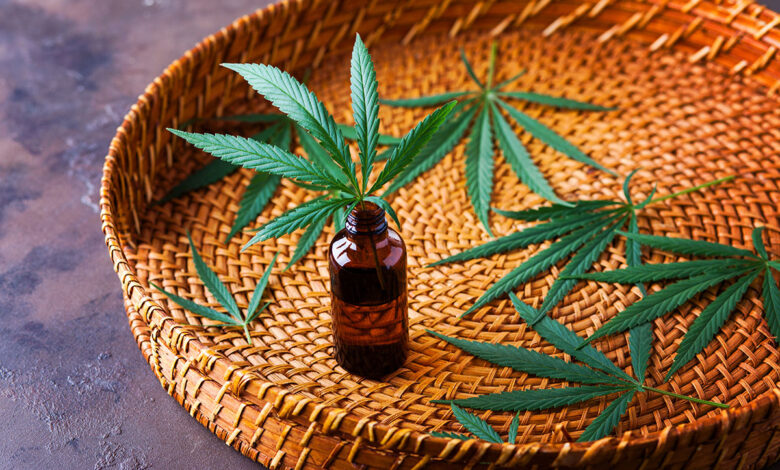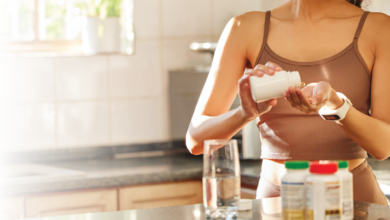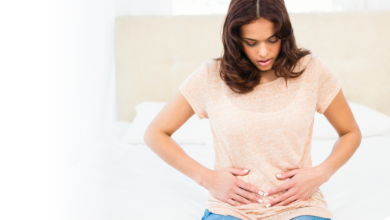The ABC’s of CBD: Answering common questions about cannabidiol

From gas station checkouts to celebrity endorsements, CBD is making its way to the mainstream, being touted for its wealth of wellness enhancements. From better sleep to pain relief and even the alleviation of anxious symptoms, some claim this natural plant compound is nothing less than life changing.
So you may be wondering, what exactly is CBD? Is it even legal? Is it safe? And how do you start with figuring out the right dosage? I’m here to provide clarity answering three of the most common questions about CBD.
1. What is CBD?
Cannabidiol (CBD) is one of more than 120 naturally occurring compounds called “cannabinoids” in the hemp plant. CBD and other cannabinoids are becoming more recognized as a natural option for people who struggle with:
- Sleep problems
- Aches, pains and inflammation
- Stress, anxiety and difficulty focusing
One of the most common forms of CBD are the oil tinctures, or drops, that are placed under the tongue and absorbed. CBD is also offered for topical application in body and skin care products, and edible versions are gaining momentum as well.
There are three classifications of CBD products often seen in the market:
Full-spectrum CBD products: These contain all of the natural cannabinoids (including less than .3% THC) as well as terpenes in the hemp plant, which together create a synergistic “entourage” effect that enhances its benefits.
Broad spectrum CBD products: In this category, the THC has been removed, while the other cannabinoids and terpenes are still present. They generally contain no detectable amount of THC, therefore, may not produce the benefits of the entourage effect like broad-spectrum CBD.
CBD isolate: The CBD cannabinoid has been separated from the other cannabinoids, which means it does not contain THC. An isolate may be less bioavailable.
Is it legal?: Growing industrial hemp as an agricultural crop became legal in Wisconsin in 2019. Licensed growers must comply with the federal regulations that limit the tetrahydrocannabinol (THC) content of the harvested flowers to less than .3%. Any CBD products marketed must also be below this threshold. At this trace level, THC is not known to produce a psychoactive effect. (However, it is possible for even that very low level to show up on a drug screening.)
2. Is CBD safe?
Safety and health are top concerns, especially when it comes to what you put in your body or on your body.
People often ask, is CBD safe to use? A growing field of research is indicating hemp-derived CBD may be helpful with treating a wide range of conditions In fact, the Food and Drug Administration (FDA) has approved a CBD-based prescription medication called Epidiolex for treating severe epilepsy.
Safe use of CBD comes down to two important factors:
Is it safe for YOU? Every “body” is different. While most people tolerate CBD very well with minimal side effects, it’s important to consult a doctor regarding how it could interact with any medications you are currently taking. In particular, be sure to ask your doctor if taking blood thinners or medications that may interact with grapefruit juice, as CBD may increase levels of such medications in your blood.
Is your CBD from a tested, reputable source? Once you determine CBD is safe for you, do your homework on choosing a source. Look for companies that share third-party verification test results from a reputable lab. Third-party lab analysis is important to look for because it verifies the levels of both CBD and THC in each bottle. Not all products on the market take this extra step to assure quality and contents. That means that levels of CBD or THC could be misrepresented. Seek out locally grown and processed products to have confidence they are American grown and made.
3. What is the right dose of CBD?
People often ask how much CBD they should take.
It’s a simple question, but there’s not a one-size-fits-all answer. Ultimately, the right dose is the amount by which you achieve a desired effect, whether that be better, more restful sleep, easing of stress and anxiety or relief of aches, pain and inflammation.
No two bodies are the same. We each have different body history and chemistry. We also each have a different endocannabinoid system. This is the system of receptors that naturally exists in your body and interacts with cannabinoids (the compounds found in cannabis, including CBD) to regulate functions like sleep, mood, appetite and memory.
Here are some guidelines for taking CBD oil:
Start low: Many people find 20 mg of CBD once or twice a day is a good place to start. After taking consistently for a week, evaluate your results. Adjust to a higher or lower amount to achieve your desired effect.
How do you know if you have taken too much CBD? Taking too much CBD can make you feel sleepy when you don’t want to be sleepy. If you experience this, try taking a lesser amount and take note of how you are feeling.
When to take: For those suffering from chronic pain and inflammation, taking the oil at the beginning of the day and at bedtime can be helpful. If falling asleep and staying asleep is a struggle, take the oil before bedtime. To relieve stress, focus better and relax the mind and body, a dose in the morning may be just what you need.
Frequency: Think of CBD oil as a vitamin, not an aspirin. Take daily as part of your personal care routine for the greatest benefit.
When will you notice a difference? Some customers notice a difference in their stress level, pain and sleep very quickly (within a few days), while others notice an improvement with consistent use over time (several weeks). n
Disclaimer: The statements made regarding these products have not been evaluated by the Food and Drug Administration. The efficacy of these products has not been confirmed by FDA-approved research. These products are not intended to diagnose, treat, cure or prevent any disease. All information presented here is not meant as a substitute for or alternative to information from health care practitioners. Please consult your health care professional about potential interactions or other possible complications before using any product. The Federal Food, Drug and Cosmetic Act requires this notice.
Peggy Coffeen is the owner and founder of P’ri CBD Wellness Products, a product of Overland Acres LLC, De Pere, Wis. She and her husband are fifth-generation farmers and state-licensed industrial hemp growers who work with a local processor to turn the hemp grown on their farm into third-party tested oils, teas, bath bombs, salves and other topical and body care products. Her faith-based mission is to help others find peace, rest and relief through her hemp-based products Contact Peggy at [email protected], and find P’ri CBD online at www.pricbd.com.




